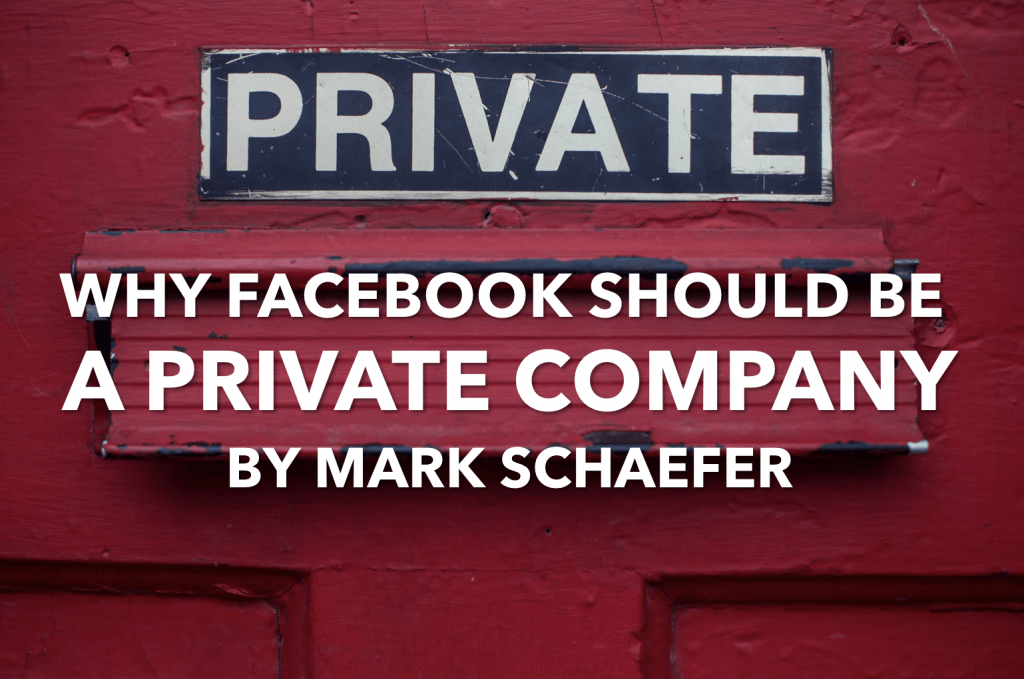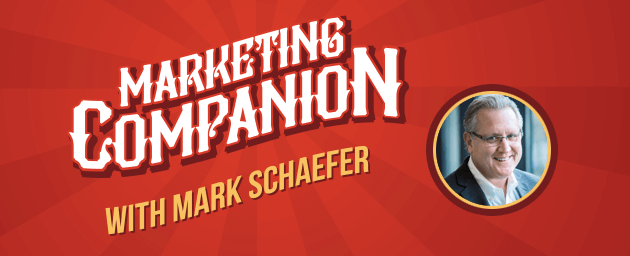By Mark Schaefer
I had several people ask me to comment on the developments between Facebook and Cambridge Analytica, a company that apparently accessed data on 50 million users illegally to influence voters during the 2016 US presidential election. Since I am a full-service blogger who is eager to please my readers, I will happily do it.
Coverage of this development, now being probed by the FTC, is everywhere, so I don’t need to recount the details of the story, which are in flux any way.
But here is the most interesting part of the entire episode, and an overlooked detail that cuts to the heart of the long-term issue for Facebook. This is a quote from an excellent article in The New York Times:
“One central tension at Facebook has been that of the legal and policy teams versus the security team. The security team generally pushed for more disclosure about how nation states had misused the site, but the legal and policy teams have prioritized business imperatives.”
“The people whose job is to protect the user always are fighting an uphill battle against the people whose job it is to make money for the company,” said Sandy Parakilas, who worked at Facebook enforcing privacy and other rules.
Alex Stamos, Facebook’s security chief, has reportedly resigned over this issue and said in a statement: “These are really challenging issues, and I’ve had some disagreements with all of my colleagues, including other executives.”
The heart of the issue is money and how to get it
So what is this “central tension” eating at Facebook like an untreatable disease?
In 2012, I wrote a blog post predicting that Facebook would become the most evil company on earth. The post received a weird reaction since at that time Facebook had about the same sort of popularity as Disney. My argument was not about the people or the culture. I predicted that Facebook would become evil because it had no choice. I wrote:
“Virtually the entire economic model of Facebook is based on a single tactic — collect as much personal information about you as possible as a way to sell highly-targeted ads. So for Facebook to succeed, it simply must collect increasing amounts of information about you. More information = more ad revenue.
“So we have to consider — Is this relentless collection of information and selling of ads sustainable in a way that meets Wall Street’s expectations for continuous and aggressive growth?
“Will we reach a saturation point where it becomes impossible for Facebook to squeeze any more information from us? Will we reach a day when Facebook’s insatiable need for data becomes annoying and invasive? Is there a theoretical limit to information gathering?”
In essence, I predicted that Facebook would become evil because it would have to find bolder and bolder ways to turn our personal information into profits.
The heart of the problem
And this quote I published from The New York Times shows my prediction was correct, and it is at the very heart of these Facebook controversies.
The “central tension” at Facebook is between the security team (wanting to do the right thing) and the commercial team (wanting to do the profitable thing). A few weeks ago, as complaints against Facebook mounted — legal issues, health issues, ethical issues — I noted that Facebook could not solve its own problems and this vicious, endless cycle of turning personal information into profits would just make the commercial situation worse and worse.
In an interview in The New York Times following this crisis, Zuckerberg acknowledged this dilemma:
NYT: Is the basic economic model of Facebook, in which users provide data that Facebook uses to help advertisers and developers to better target potential customers and users — do you feel like that works, given what we now know about the risks?
Zuckerberg: “Yeah, so this is a really important question. The thing about the ad model that is really important that aligns with our mission is that — our mission is to build a community for everyone in the world and to bring the world closer together. And a really important part of that is making a service that people can afford. A lot of the people, once you get past the first billion people, can’t afford to pay a lot. Therefore, having it be free and have a business model that is ad-supported ends up being really important and aligned.
“Now, over time, might there be ways for people who can afford it to pay a different way? That’s certainly something we’ve thought about over time. But I don’t think the ad model is going to go away, because I think fundamentally, it’s important to have a service like this that everyone in the world can use, and the only way to do that is to have it be very cheap or free.”
Taking Facebook private
Sure, there is the issue of the Facebook “mission,” but the larger problem is, if Zuckerberg allowed people to subscribe to an ad-free and more secure Facebook, the entire ad model would crumble. Advertisers presumably would have access to those unable to afford a subscription … not very appealing to most brands. And this would undoubtedly open the doors for a competitor.
So the problem is unlikely to be resolved by Facebook. Unless …
Facebook has to make dramatic changes to right the ship … changes that would almost certainly hurt the stock price. As long as Zuckerberg and his company have that excruciating pressure from Wall Street, the organization simply cannot make the dramatic systemic changes it needs to survive.
So, Zuckerberg needs to take the company private. It is the only solution I think that can save the company and truly position it for the long-term.
There is precedence for this of course, most recently Michael Dell took his massive tech company private in 2013 so it could better focus on long-term growth instead of managing to a quarterly profit.
Similarly, Facebook needs the breathing room right now to relieve this “central tension” and focus on the critical systemic issues that are slowly destroying the company and its reputation.
Going private could:
- Reduce regulatory, administrative, and reporting requirements and free up money to focus on long-term goals.
- Allow Facebook to re-create the company through new business models and monetization schemes without the relentless pressure of “beating the Street” every quarter.
- Being private frees up management’s time and effort to concentrate on running and growing a business and addressing some of these ethical issues like fake news and social media addiction. At the beginning of the year, Mark Zuckerberg pledged to “fix Facebook.” Going private would help him focus on realities other than stock price.
I’m not a finance expert and I haven’t carefully studied the Facebook balance sheet, but I think the company has a strong enough cash flow and access to capital that it could operate very successfully as a private firm (although it would need to remain profitable … that would not go away).
Somehow, Zuckerberg needs to resolve this “central tension” causing the crisis at his company and there is no way to do that and meet Wall Street’s expectations at the same time.
Your views?




